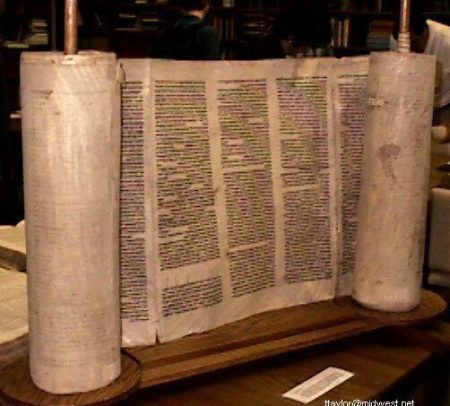This is where we learn why the Jewish people wandered forty years in the desert. The Lord orders Moshe to send out one prince from each tribe to spy out the land of Canaan. When the 12 men return, all
We begin this portion of the Torah with the lighting of the menorah. The Tabernacle has been constructed and anointed, then Aaron and his sons, now the menorah is lit and Aaron is told that he and his descendants are the
This reading starts with a census of the Levitical clans so that the number of those who are able to do service in the Tent of Meeting can be counted. The age range for service is from 30 to 50 years
This is the 4th book of the Torah, and whereas Vayikra was mostly ordinances and regulations, this book is more historical, although we do have the laws about wearing tzitzit, the regulations regarding jealousy, the Red Heifer, the menorah and
God instructs us to be fair to each other in our economic dealings, to use a pro-rata system of valuation when we are exchanging and redeeming property, and that slavery is an acceptable form of servitude, except that other Israelites
We have now gone past the middle of Leviticus, the central book of the Torah, which means we are on the “downside” of the Torah, getting closer to the end than we are from the beginning. That doesn’t mean what
Acharey Mot starts with the regulations about how to celebrate Yom Kippur, then about not eating blood and ends with forbidden types of marriages and worship. This is a continuation of the main theme throughout this entire book, which is
This Shabbat is a double parashah reading. There are times when we read two parashot instead of one to sort of “catch up” so that we stay on the annual schedule. We read out of sequence for the Pesach Shabbat,
Every time I read this parashah I do not understand the answer Aaron gives to Moses after Nadab and Abihu are destroyed for offering incense that was done in a disrespectful and unauthorized manner. I suppose it has to do
The first part of this Parashah has Aaron completing the offerings he is to make as his entry into the priesthood, and his sacrifice is accepted by God, as evidenced by God’s fire coming down to burn up the offering.
Weren’t we in the book of Leviticus last week? How’d we get back to Exodus? Today, actually tonight, begins Passover (‘Pesach’, in Hebrew.) As such, this being one of the most important and happiest of all the Holy Days God
The prior chapters are addressed to the entire congregation, whereas these next chapters are more specifically to the Priests, describing the way the different sacrifices should be offered, and which portion of the sacrifice is for the Priests, who may eat it,

